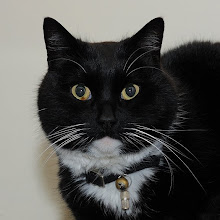Anyone with a some knowledge of the older regiments of the British Army will know that several regiments started life in service of a foreign power. Famous are of course The Royal Scots in service of France between 1633 and 1678 (except a few years in England), and The Buffs which originate from regiments formerly in service of the Dutch Republic. Others are the Royal Northumberland Fusiliers and Royal Warwickshire Fusiliers which were both formed late 1674 for Dutch service. This post will discuss this latter regiment, and one of its first colonels in particular.
The regiment was apparently formed 12 December 1673 in England as a volunteer regiment for Dutch service, under command of Sir Walter Vane. Sir Walter was colonel of a regiment raised in 1667, and hold colonelcy of the Holland Regiment (the future Buffs) between 1668 and 1673. He was killed at the Battle of Seneffe 11 August 1674 and was succeeded by colonel Lillingston.
English sources (Dalton's English Army Lists and Commission Registers, or succession of colonels as found in Army Lists) claim this was Luke Lillingston, the same Lillingston that would raise a regiment in 1705 (eventually becoming the 38th Foot). On the other hand, Dutch sources claim it was a Henry Lillingston that commanded this English regiment in Dutch service. This Henry Lillingston commanded a Cromwellian regiment raised in the late 1650s to serve in Flanders on the French side (during the Franco-Spanish War; Royalist (English) regiments fought on the Spanish side). This claim is supported by C. H. Firth in his article Royalist and Cromwellian Armies in Flanders, 1657-1662 (Transactions of the Royal Historical Society, 17, pp. 67-119 (1903)). Firth assumes that Luke was a son of Henry Lillingston, and that Luke served as a junior officer in his father's regiment in 1675. This is supported by an article in De Nederlandsche Leeuw of 1944, (the magazine of the Dutch society for genealogical and arms studies) stating that Luke Lillingston became captain on 19 January 1676, and that he was probably a son of Henry Lillingston who commanded an English regiment entering Dutch service in 1674-75.
Furthermore, a note to Henry Lillingston's commission in Het Staatsche Leger, volume 6, page 255 states he relinquished his command in 1676, and that prince William III awarded him a lifelong pension.
In addition, Luke Lillingston appears as an ensign in the Earl of Mulgrave's Regiment in January 1673. The same regiment in which Henry was appointed Lieutenant-Colonel. This regiment was disbanded in 1674, and it is likely that many officers sought employment on the continent. Luke being an ensign in 1673 makes is not very likely that he became colonel in 1674/75.
Combining all this it appears more likely that it was Henry Lillingston who commanded the English regiment in Dutch service in 1674-75, and not Luke Lillingston as found in many English sources, most notably in histories of the Royal Warwickshire Regiment. (This, unless there was another Luke Lillingston not identified yet.)
Addendum: The Oxford Dictionary of National Biography contains an entry on Luke Lillingston written by John Childs. This article by Childs confirms the above.
Subscribe to:
Post Comments (Atom)




3 comments:
Ha, mooi gevonden. Is de nederlandse leeuw overigens ook digitaal te doorzoeken?
Het is natuurlijk wel met een slag om de arm. Maar iemand die in 1673 ensign was, moet wel hele goede familiebanden hebben gehad om in 1675 al colonel te worden. En dat in 1705 nog steeds te zijn. Ok, het kwam wel voor, maar meestal bezat je op het einde van je loopbaan toch wel een van de garde regimenten ofzo ...
Anyway, de copie van de Nederlandsche Leeuw heb ik gevonden op http://www.noordelingen.nl/1944.pdf
Het lijkt een OCR scan van het tijdschrift, en is prima te doorzoeken. Soms levert slim googlen fijne resultaten op.
Ja, vertel mij wat. Ik heb net in de UB een paar hele leuke dingen gevonden in het blad 'Oud-Holland' Dat is op gedeeltelijk op archive.org te vinden, maar Brill heeft ze digitaal uitgebracht en op google geindexeerd en je kunt er dus op zoeken met google. Helaas moet je voor het resultaat betalen, maar de UB zit hier om de hoek dus gewoon even inkijken. Heb wat leuks gevonden over ene Erskine...
Post a Comment